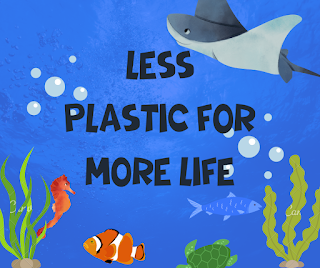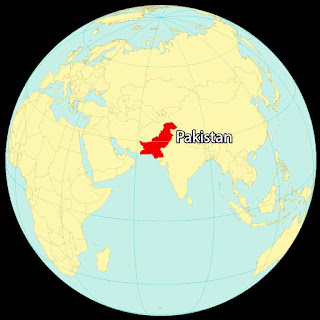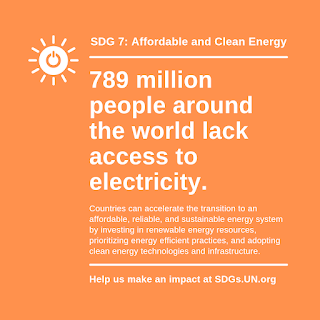PLASTIC POLLUTION
From 2.3 million tons in 1950 to 448 million tons in 2015, plastic production expanded dramatically. By 2050, production is anticipated to double. As the world's capacity to deal with the fast rising output of disposable plastic goods becomes overwhelmed, plastic pollution has emerged as one of the most urgent environmental challenges.
Why are plastics a
threat?
- They take hundreds of years to decompose.
Plastics frequently
contain additives to make them more resilient, flexible, and strong. However,
many of these compounds can lengthen the lives of products if they wind up in
waste; some estimates place the break-down time of these additives at at least
400 years.
- Most plastic trash ends up in the oceans.
In impoverished Asian
and African countries, where rubbish collection services are either ineffective
or nonexistent, plastic pollution is most noticeable. However, the
industrialized world also has issues with adequately collecting used plastics,
particularly in nations with poor recycling rates. Approximately 8 million tons
of plastic trash are lost into the oceans each year by coastal countries. That
would be the same as covering every foot of coastline on the planet with five
trash bags.
- Plastics pose a serious threat to wildlife.
It is predicted that by 2050, there will be more plastic in the oceans than fish. Microplastics have been discovered in over 100 aquatic species, including fish, shrimp, and mussels. Every year, plastic kills millions of species, including birds, fish, and other marine organisms. Plastics are known to have harmed nearly 700 species, including endangered species. Almost every seabird species consumes plastic.
Plastics have been swallowed by land-based creatures such as elephants, hyenas, zebras, tigers, camels, cattle, and other large mammals, resulting in mortality in some cases. Tests have also revealed liver and cell damage, as well as disturbances in reproductive systems, causing some species, such as oysters, to lay fewer eggs. According to new research, larval fish consume nanofibers in their initial days of life, raising new concerns about the consequences of plastics on fish populations.
- They cause global warming.
One of the most
carbon-intensive industries on the globe is plastic. In fewer than 30 years,
its carbon footprint has doubled, and it currently makes up over 5% of all
yearly greenhouse gas emissions. Plastics would rank as the fifth-largest
emitter in the world if they were a country.
Pakistan's plastics
In Pakistan, plastics
make up 65% of all waste; there are 55 billion plastic bags in circulation, and
that number is predicted to rise by 15% this year. Plastics are cheaper,
durable, and accessible in the country, which is why they are used in large
numbers. According to a World Bank survey, the Indus River transfers around
10,000 tons of macroplastics to the Arabian Sea each year.
Much of the plastic
waste in Pakistan ends up in landfills, unmanaged dumps, or strewn across
land and water bodies. The figure below shows that if we dump this waste
collectively, it can reach a height of 16500 m, which is the height of two of
the world's second highest mountains (K2 Mountain).
According to UNDP,
current municipal waste management techniques exacerbate the problem by
focusing on garbage collection from public bins and disposal in urban outskirts
without segregation, material recovery, or recycling, and by not requiring
communities to act responsibly.
Taking Action
To save our nation and
the environment, immediate and effective action must be taken to reduce the use
of plastics.
- Through advocacy campaigns, the government and
non-governmental organizations should raise national awareness.
- Schools and universities should conduct beach cleaning
activities for students.
- Recycling should be done at a state as well as an
individual level.
- The use of plastic bags should be limited by strict
government orders.
- Scientists and researchers should be approached for
innovative ideas about the replacement of plastics.
- Private factories producing plastic waste should be heavily fined.
Resources
https://www.nationalgeographic.com/environment/article/plastic-pollution
https://www.wwfpak.org/issues/plastic_pollution/





Comments
Post a Comment